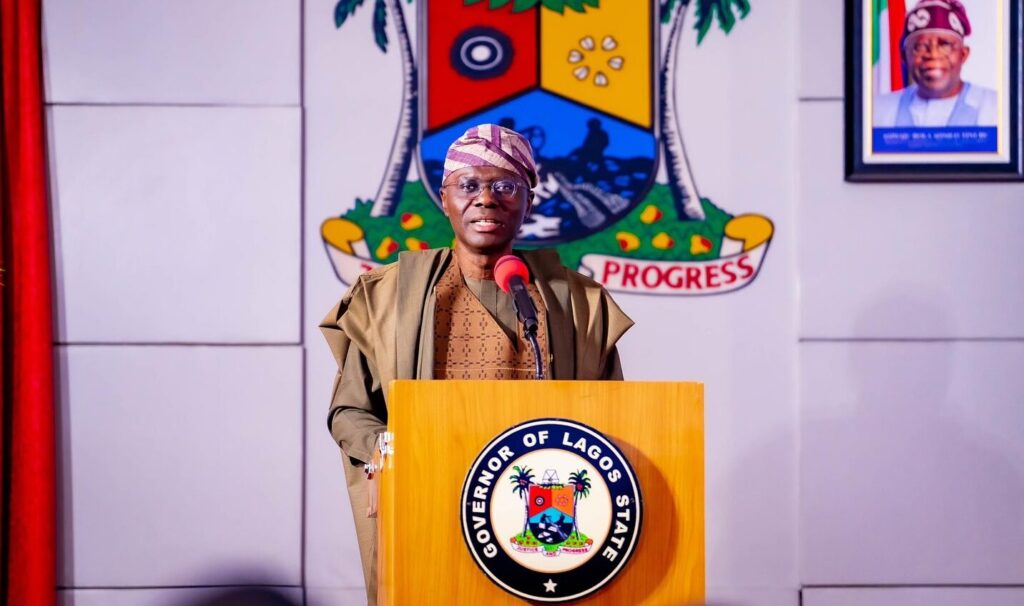The African Action Congress (AAC) has rejected the administrative charges imposed by the Lagos State Independent Electoral Commission (LASIEC) on candidates seeking to contest for office in the forthcoming local government elections in the state.
In a statement shared with PREMIUM TIMES on Wednesday, the party said the fee represented a “monetisation of politics” that could disenfranchise credible candidates.
The statement, signed by AAC state executives, including chairperson Ayoyinka Oni, Secretary Jedege Kehinde, and Organising Secretary Akinfolarin Folayemi,
described the imposition of the fee as unconstitutional and exclusionary.
“If the Independent National Electoral Commission (INEC) does not impose such fees, why should LASIEC? This is a monetisation of politics that will disenfranchise credible candidates,” AAC said.
All political parties fielding candidates for the forthcoming local elections earlier rejected the fee, warning that the political landscape was drifting towards a one-party system.
LASIEC’s guidelines indicate that parties are to pay N150,000 for chairmanship candidates, N75,000 for vice-chairmanship candidates, and N50,000 for councillorship candidates as administrative charges.
However, the commission noted that female candidates and persons with disabilities (PWDs) are exempted from these fees.
The agency fixed 12 July for the state council for 57 council chairmanship positions and 376 councillor seats across the state. If necessary, a re-run will occur on 19 July.
The local government councils comprise 20 Local Government Areas and 37 Local Council Development Areas (LCDAs).
But AAC, which fielded activist and Sahara Reporters publisher Omoyele Sowore as its presidential candidate in 2019 and 2023, said LASIEC’s move to conduct elections into the 37 LCDAs along with the constitutionally recognised 20 LGAs is unconstitutional in light of a recent Supreme Court affirming the autonomy of local governments in Nigeria.
The Supreme Court recently affirmed the financial and administrative autonomy of Nigeria’s 774 LGAs, ruling that state governments must not interfere with their independence.
The AAC further accused the State Assembly of previously proposing to install mayors to head the LCDAs appointments to be made by the governor. The party said it opposed the move during a public hearing, which led to the clause being dropped from the bill.
“When they realise they cannot succeed in violating existing laws, they try to force unconstitutional structures on us,” the party said. “The AAC will not be part of this illegality.”
The 37 LCDAs were created in 2003, during the tenure of then-Governor Bola Tinubu, the future Nigerian president.
Lack of transparency, fear of violence
AAC also faulted LASIEC for what it described as a lack of transparency in the electoral process, particularly the commission’s failure to publicly release the new electoral law passed on 9 January and signed by the governor the next day, allegedly during a legislative recess.
According to the party, LASIEC chairperson Ayotunde Phillips told IPAC members that the law could only be obtained for a fee.
“We now wonder when laws became items for sale,” the AAC said, adding that such actions undermine public confidence in LASIEC’s ability to conduct credible elections.
The AAC expressed concerns about the potential for violence and urged LASIEC to publicly outline its plans to prevent electoral malpractice and thuggery.
READ ALSO: Over half of Lagos students fail 2024 WASSCE, state government laments
“We will not accept an election marred by violence, malpractice, or partiality,” the party warned.
Mr Oni called on Lagos residents to resist what he described as efforts to impose unconstitutional governance structures.
Dispute over LCDAs
Meanwhile, in December 2024, Cornelius Ojelabi, chairman of the ruling All Progressives Congress (APC) in Lagos, stated that elections would be held in both the 20 LGAs and the 37 LCDAs in 2025.
In contrast, Okanlawon Sanni, the chair of the Lagos House Committee on Local Government, Chieftaincy Affairs, and Rural Development, told journalists also in 2024 that the elections would be limited to the 20 LGAs, in compliance with the Supreme Court ruling.
He said the Assembly was working on a new Local Government Administration Bill to align state law with constitutional provisions.
According to Mr Sanni, under the proposed bill, the governor would appoint mayors to head LCDAs, which would remain under the jurisdiction of the 20 LGAs and receive funding through them.
The AAC, however, maintains that any governance or election structure outside of the constitutionally recognised 20 LGAs is illegal, and vowed to resist it through legal and political means.
Support PREMIUM TIMES’ journalism of integrity and credibility
At Premium Times, we firmly believe in the importance of high-quality journalism. Recognizing that not everyone can afford costly news subscriptions, we are dedicated to delivering meticulously researched, fact-checked news that remains freely accessible to all.
Whether you turn to Premium Times for daily updates, in-depth investigations into pressing national issues, or entertaining trending stories, we value your readership.
It’s essential to acknowledge that news production incurs expenses, and we take pride in never placing our stories behind a prohibitive paywall.
Would you consider supporting us with a modest contribution on a monthly basis to help maintain our commitment to free, accessible news?
TEXT AD: Call Willie – +2348098788999





